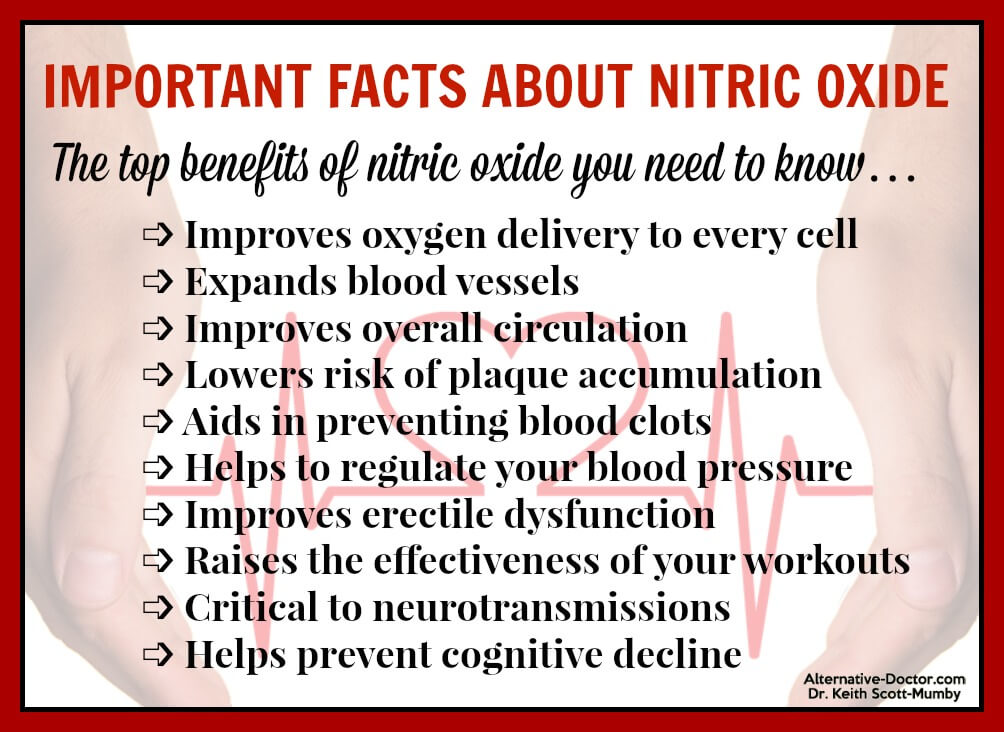Heart disease remains the #1 killer in the world.
For decades, cardiovascular disease has claimed the lives of hundreds of millions globally while scientists scramble to unravel the mysteries surrounding the human body.
Every year, new information comes to light about our critical organs, how our bodies work, and what we can do to protect them.
Researchers at Cleveland’s Case Western Reserve University School of Medicine just learned exciting new details about the respiratory cycle functions.
Up until now, conventional thought stated that the respiratory system used two gases – oxygen and carbon dioxide. Your red blood cells gather and transport inhaled oxygen to your cells while picking up waste carbon dioxide to be exhaled.
All this time, there’s been an unknown third gas cycling in and out of your heart: nitric oxide.
The Benefits of Nitric Oxide
Nitric oxide determines when and how the oxygen carried by the red blood cells is released into your tissues. Without this third gas carried along with the oxygen, the proteins in your cells (hemoglobin) wouldn’t be able to do this crucial job.
Jonathan Stamler is a cardiologist and professor at Case Western who was one of the authors of the study. “Blood flow to tissues is actually more important in most circumstances than how much oxygen is carried by hemoglobin,” he explains.
Without the benefits of nitric oxide, the human respiratory system would be unable to function at all. The mystery of why there was an disproportion in oxygen delivery (what was picked up and what was actually delivered to cells) is finally clear.
Nitric oxide controls the overall blood flow. They refer to it in their final results as blood flow autoregulation and the mapping for this cycle is wired into the hemoglobin. Without sufficient nitric oxide, oxygen doesn’t make it to the cells that need it. No matter how much oxygen your red blood cells load up, delivery is dependent on this third gas.
Professor Stamlin stated, “Within the tissues, the tiny vessels and the red blood cells together make up the critical entity controlling blood flow. Red blood cell dysfunction is likely a hidden contributor to diseases of the heart, lung and blood such as heart attack, heart failure, stroke and ischemic injury to kidneys.”
This scientific breakthrough (and that happens much more rarely than I’d like) could change the way heart disease is approached going forward. It’s entirely plausible that the benefits of nitric oxide could hold the key to a healthy heart.
Not to mention every other cell in your body that needs that regular delivery of oxygen!

Facts about Nitric Oxide
Most people don’t know much about this molecule but it’s often confused with nitrous oxide (laughing gas). It’s created by your body, in the lining of your blood vessels. The healthier you are, the better your production. If you have health issues, chronic stress, or rampant inflammation, your body makes less nitric oxide.
The top benefits of nitric oxide you need to know…
- Improves oxygen delivery to every cell
- Expands blood vessels and improves overall circulation
- Lowers risk of plaque accumulation on arterial walls
- Aids in preventing blood clots
- Helps to regulate your blood pressure
- Improves erectile dysfunction (the most common ED drugs use nitric oxide)
- Raises the effectiveness of your workouts by getting more oxygen to muscles
- Critical to neurotransmissions in the brain and helps prevent cognitive decline
Nitric oxide is your own version of nitroglycerin. That’s the drug used to alleviate pain in patients with angina, which converts into the natural form once ingested. The drug uses the same biological pathways as the nitric oxide created by your body.
You can boost your levels of beneficial nitric oxide through your diet and lifestyle choices. Following a pro-antioxidant eating plan and limiting pro-inflammatory behaviors such as excessive alcohol consumption and smoking also benefit your body’s ability to make this critical third gas you need more than anyone ever imagined.
Best Foods to Boost Nitric Oxide Production
- Grass-fed meat
- Eggs
- Leafy greens (kale, spinach, arugula, cabbage)
- Beets and beet juice
- Celery and carrots
- Radishes
Lowering your stress, getting vitamin D through sunlight, exercise, and adequate sleep also help lower inflammation and heal your body. So many diseases and conditions are prevented or improved by these same habits.
You might not have known much about nitric oxide before but now that you do, you need to make sure your body stimulates enough. Your heart (and every other cell in your body) is going to thank you!
The post How Benefits of Nitric Oxide Can Help Your Heart appeared first on Alternative Doctor Dev Site.
